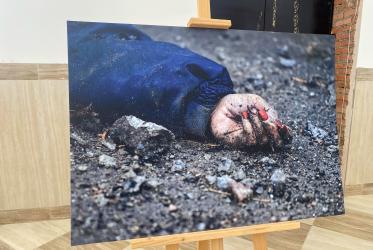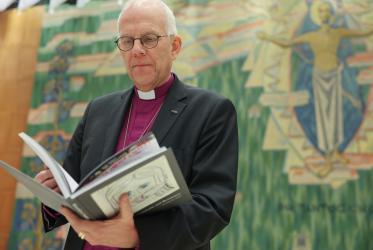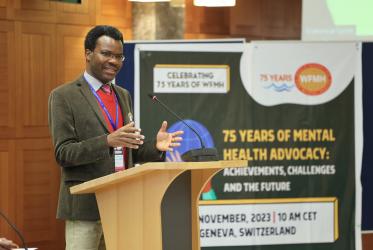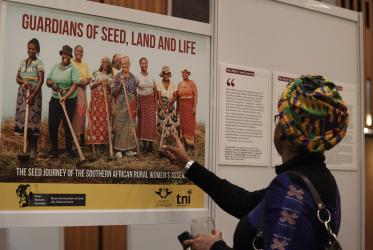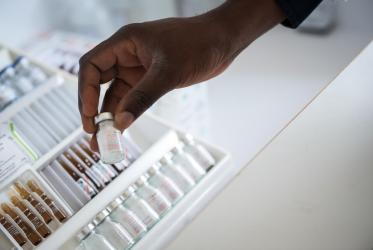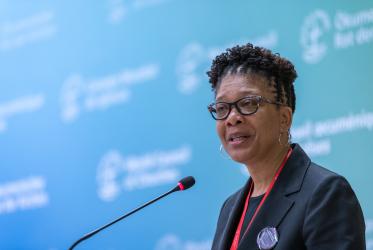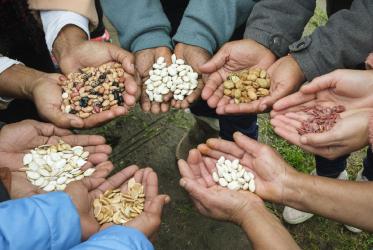Displaying 41 - 60 of 1129
21 December 2023
Tackling sexual violence in war
14 December 2023
WCC webinar explores decolonizing beauty
11 December 2023
Beginning soon: 16 Days against Sexual and Gender-Based Violence
21 November 2023
WCC Eco-School begins in Crete
15 November 2023
WCC will host hybrid event on mental health advocacy
10 November 2023
WCC guide raises awareness of obstetric fistula
26 October 2023
World Council of Churches hosts "Guardians of seeds" exhibition
18 October 2023
